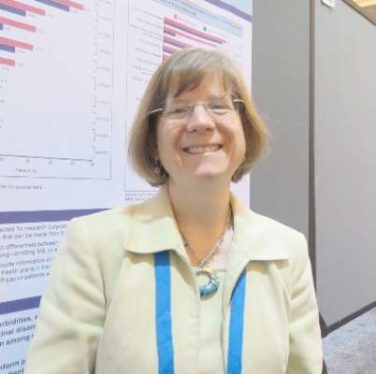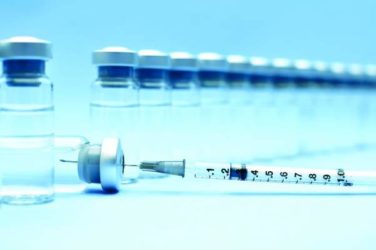AT ESHRE 2016
HELSINKI, FINLAND (FRONTLINE MEDICAL NEWS) – Recombinant human growth hormone, or r-HGH, offered no advantage over placebo with respect to improving the live birth rate among poor-responding women undergoing in vitro fertilization in a randomized controlled study.
The current findings and those from previous studies leave questions about the value of r-HGH supplementation unanswered, Robert Norman, MD, said at the annual meeting of the European Society of Human Reproduction and Embryology.
An “extremely large” randomized trial would be needed to definitively show whether poor IVF responders benefit from r-HGH supplementation, he said.
The clinical pregnancy rate in 66 women randomized to receive r-HGH in the current study was 9.1%, compared with 9.2% in 65 patients in the placebo group. In the groups, respectively, the mean number of oocytes collected was 5.38 and 4.96, median embryo quality was 2.00 and 2.14, median days of a study drug were 8 and 9, and in both groups the median number of days of follicle stimulating hormone was 8, and the mean number of embryos transferred was 1.
The overall live birth rate per patient randomized was 12.3%; the groups did not differ significantly on any of these measures, said Dr. Norman of the University of Adelaide, and Fertility SA, Australia.
Human growth hormone is known to be important for ovarian steroidogenesis and follicular development, and prior research, including a recent Cochrane Review, has suggested it is associated with a trend toward improved live birth rates when used as an adjunct to IVF in poor responders (though not in routine IVF). The prior studies, however, have been underpowered, involved significant clinical heterogeneity between study groups, were not placebo controlled, and used pregnancy rather than live birth as the endpoint. Further, safety outcomes among patients treated with r-HGH were uncertain, Dr. Norman said.
For the current study, women were recruited from nine fertility centers in Australia and from one center in New Zealand. All met the criteria for poor response, having had a previous IVF cycle with no more than five eggs collected following maximum stimulation. Of the 131 women randomized, all underwent ovarian stimulation with the same previous drug dose, and 116 had oocyte retrieval, 97 had embryo transfer, 25 reported a positive pregnancy test, and 16 had a live birth, which was the primary endpoint of the study. Three sets of twins were born – all to women in the r-HGH group. Four serious adverse events – all congenital abnormalities – were noted, including three in the r-HGH group and one in the placebo group. No serious adverse events occurred.
Of note, the study, which was expected to be completed in 2 years, was terminated after 4 years because of slow recruitment. Since the 390 patients required to demonstrate a difference between the groups were not enrolled, the study remained underpowered, Dr. Norman said.
Nonetheless, the findings, which highlight the challenges in answering the questions that could shed light on the best clinical treatment for a poor IVF responder, fail to provide any evidence either for benefit or for lack of benefit with the use of r-HGH in this group.
“If it were cheap, it might find a place in poor responders, but normal doses cost more than $1,000,” he said in a press statement regarding the findings.
Poor responders are a notoriously difficult group to treat, and although many strategies have been tried, there is no solid evidence that any of them improve the outcome of most concern to women undergoing IVF: the live birth rate, he added, noting that 30% of patients who are poor IVF responders and who have low pregnancy rates are over 40 years old.
Dr. Norman reported having no financial disclosures.





